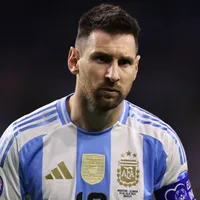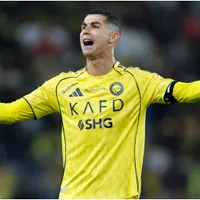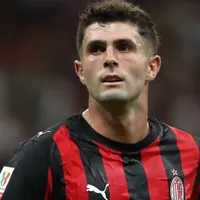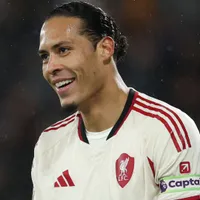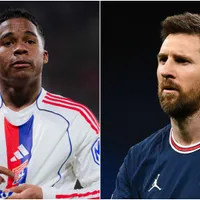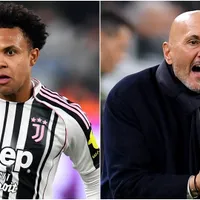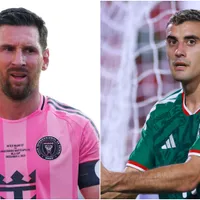On Thursday night at 7pm ET, ESPN will debut its final film in the 30 For 30 Soccer Stories series. The film, entitled White, Blue and White, tells the story of Osvaldo Ardiles and Ricky Villa’s journey from Argentina to England to play for Tottenham Hotspur, and the impact that the Falklands War between England and Argentina had on their lives.
Both Ardiles and Villa were teammates on the Argentina squad that won the 1978 World Cup. The film begins by telling the story of how Tottenham tried to sign Ardiles, and how he convinced manager Keith Burkinshaw to sign Villa too. They soon became the first South Americans ever to play in England.
Featuring interviews with Glenn Hoddle, Burkinshaw, Paddy Barclay and others, the heartwarming and revealing film explains how Ardiles was a man caught between two countries — where he was seen as a traitor by Argentina because he played in England, and where, after the war began, he was booed and jeered in England because he was Argentine.
The film also takes on a personal note as Ardiles shares his memories and thoughts regarding his cousin, who died in the war after being shot down by a British Air Force Harrier jumpjet.
In an emotional moment in the film, Ardiles and Villa decide to visit Islas Malvinas, but what happens is quite unexpected.
White, Blue and White debuts on ESPN at 7pm ET tonight. The film is highly recommended.
Earlier this week, World Soccer Talk interviewed Ossie Ardiles, where he discussed the film, Messi vs Maradona and his thoughts regarding Tottenham Hotspur’s Glenn Hoddle, and much more.
Kartik Krishnaiyer (KK): What are your thoughts about what you’ve seen so far in this World Cup?
Ossie Ardiles (OA): It’s been an absolutely wonderful World Cup. One of the best in living memory. Sometimes the World Cup features teams playing in a very defensive manner, but that hasn’t been the case for this World Cup, so it’s been wonderful with a lot of teams — in principle, who were not going to do very well like Costa Rica and USA — doing well.
KK: Did it remind you in any way of 1978 because it’s on South American soil with lots of goal scoring?
OA: Yes, I’ve been very impressed with all of the South American teams, really — apart from Uruguay, who I didn’t like very much, but Colombia has been wonderful. They’ve been playing very carefree going forward. It’s been very nice to see.
KK: Let’s talk about the film you’ve done “White, Blue and White.” How do you think it helps people in understanding the Falklands Conflict?
OA: Well, I hope that it shows the problem that we encountered because sometimes people think that the football players have a very cozy life and that they just play football, have a lot of money and that is it. But sometimes there are a lot of different situations that arise where you don’t have a lot of control whatsoever.
For me, it happened in 1982. Ricky Villa and I were here in England (playing for Tottenham Hotspur), and the two countries (Argentina and Great Britain) were at war. When war occurs, the first casualties are the truth, to be perfectly honest. Everyone started to say a lot of different things — very horrible things, really.
So this is our story when things were going so, so well for us (in England), and suddenly our worlds went down completely.

KK: Talk about 1981. The FA Cup Final. We know what Ricky Villa did. The two of you were the heroes at Spurs, along with Glenn Hoddle. You guys were the embodiment of that Spurs side. A year later, your life is ruined as you describe it in the film. Take us through that process, and how difficult that was.
OA: Like I say in the film, the country where I was born was at war with the country that had adopted me, so just to be there (in England), I couldn’t say anything. Whatever I said was misinterpreted. In a way, (Ricky and I) couldn’t win. So, it was very, very hard. We were at a time in our career where we were playing so well. And after that, the team started to disintegrate because I went to Paris Saint Germain, there were some injuries and so on.
KK: Ricky came to where I am in Fort Lauderdale. And you came a couple of seasons later.
OA: That’s right. That is a wonderful place. We always remember it well with a lot of fond memories. A beautiful place.
KK: Let me ask you about playing with Glenn Hoddle. There are very few English footballers with his technical skill, particularly at that time. He was more South American with his style. Do you think he never got the recognition he deserved in England?
OA: I can assure you that today, there is no one Englishman near him with the level of ability that Glenn had. No one. In fact, after him, maybe one or two footballers may have come close to him in terms of this kind of ability. One was Paul Gascoigne. And the other was Paul Scholes. No one else.
With Ricky and Glenn, we had a very good understanding — we “spoke” the same language (in football). For Glenn, we were a big, big help for him because in the way he played football, he needed something a little bit different. And of course, for Ricky and me, he was a big, big help to have Glenn because he played the way that we wanted to play. so that was great.
KK: Regarding the film, what was your feeling seeing the battle sites and grave sites on the Falkland Islands? How did that stir emotions in you?
OA: It was a tremendous sadness to be perfectly honest with you. I became very anti-war, 100% anti-war.
I have become very sympathetic about what happened regarding this war. There are a lot of people who talk about the principles. At the end of the day, war is horrific.
When I was in the Falklands, the Malvinas, I was very touched because my life was — I wouldn’t say destroyed. It was tumbled down, yes. But if you compare that to the actual people who lost their lives, you cannot possibly compare the two things.
I hope that the message of the film is a message of peace and love, and a very clear message that says no to war.
KK: You were in this position where your life was dramatically impacted by this war. You left England to play for Argentina in the 1982 World Cup, but you came back after the war was over. When you came back to England, did you feel that the English public and particularly Tottenham supporters embraced you once again?
OA: After the war, I came back to Tottenham and carried on playing for one year. I played for six or seven years more, and then I retired from football. And then I started my management career. Three or four days later, I became the manager of Tottenham.
Time is big healer.
When I came back to England, nothing happened to Ricky or me, but sometimes I was a little apprehensive and nervous, but we never had a single incident. But of course, at the beginning, no one would talk to me about the war. And every time this topic of the war arose in conversation, I felt very uncomfortable.
Little by little, with the passing of time, I felt much more open about talking about it.
In 1994, twelve years later, there was already a different scenario. I wasn’t thinking about the war every day.
KK: You haven’t been able to see a World Cup on Argentine soil since 1978. For 2018, you and Ricky were out front advocating for England, but FIFA awarded it to Russia. Do you feel like you may never see a World Cup in England or Argentina?
OA: It could be. England were very close to winning the 2018 one. But at the end of the day, they only had one vote {laughs). You shouldn’t laugh, but the England (bid team) was very confident. However, what I mean is that it could happen where, before I die, I will see another World Cup in England. Yes, I think so. I’m not so sure I will see another one in Argentina. Maybe, yes.
KK: As you see soccer evolve, you compare players from different generations. You played with Maradona. And now the comparison is to Messi. Do you think it’s fair to compare these players from different generations when soccer is different?
OA: It’s not fair because FIFA has been criticized a lot through the years, as you know, but one thing they did that they did incredibly well was the the fair play mentality. That happened after 1982. It means that the people who can create, who can make football beautiful, they are the ones that are going to be protected (on the field). Before, there were a lot of fouls, especially in the World Cup. There was a freedom “to kill.” That was happened in 1966 with Pele, for example.
All of this has changed. Because the rules have changed, the emphasis is on playing much better football without being violently treated. So the greatest beneficiaries of this are people like Zidane. And people like Ronaldo, and of course, Messi. So I would like to see Maradona or Pele play right now, for example, with this freedom to express yourself. No one is going to come and break your legs. No one is going to make a terrible foul, no. So it’s very difficult to compare the two because they play in two completely different times.

